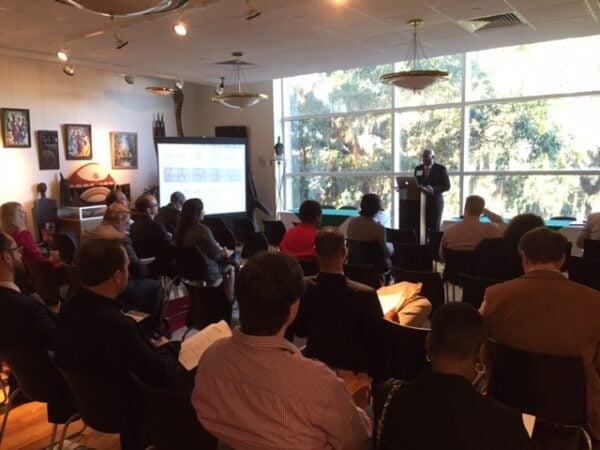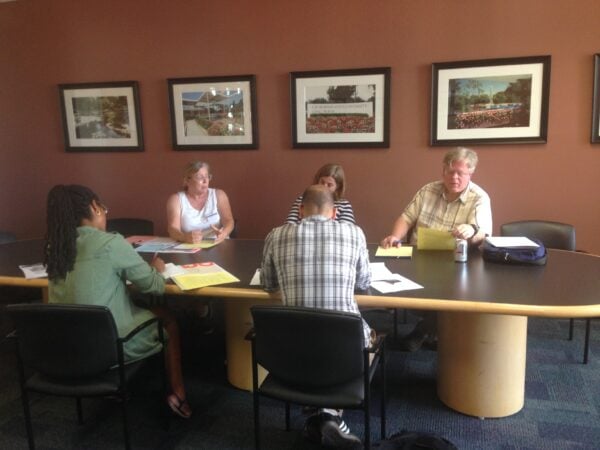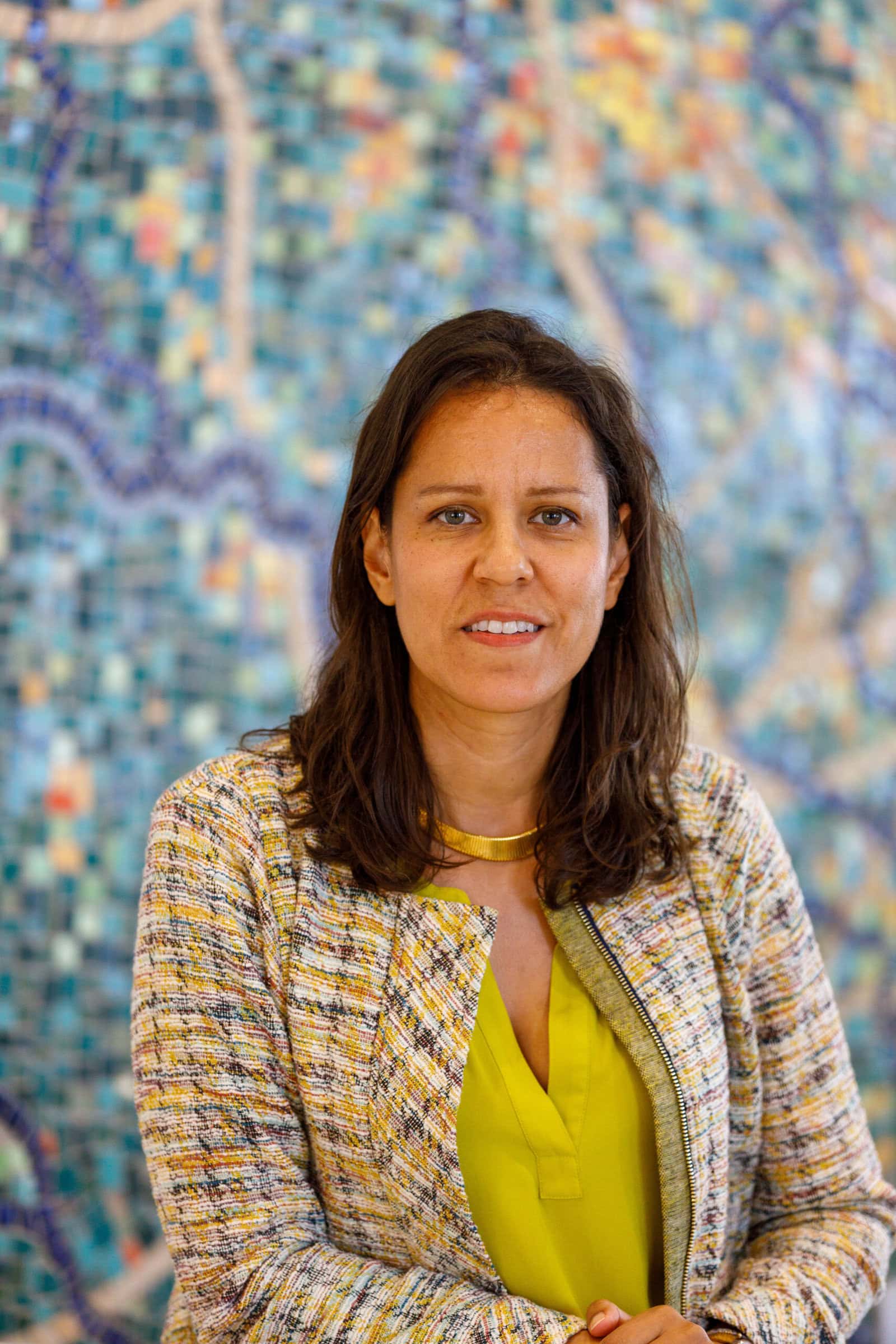The AHA Tuning project held four events around the country this fall, following up on the success of its New York regional conference on the history major in May 2014. Historians and allies met in Texas, Florida, and Southern and Northern California. Organized by faculty members and hosted by local universities, each of these free events offered a forum and resources for addressing some of the pressing issues that history programs, students, and instructors face in higher education today.
Tuning is a faculty-led, collaborative process to articulate what students should know, understand, and be able to do at the completion of a specific degree program. Faculty historians involved in the AHA Tuning project, which began with a grant from Lumina Foundation in 2012, have found its methods useful for working through individual and program goals. These have included redesigning courses, mapping curricula, developing language to speak more clearly to students about the benefits of majoring in history, and aligning program learning assessments with what really matters to historians.

The Southeast Tuning Symposium at Florida A&M University on October 8, 2015. Credit: Daniel McInerney.
The AHA and its local partners, the Texas State Historical Association and the history department of the University of Texas at Austin, held a two-day conference on college-level introductory history courses on August 28 and 29. Close to 100 people, most of whom teach introductory courses at colleges and universities across Texas, discussed pedagogical and policy issues that affect these courses, which is particularly important because Texas still requires history in its undergraduate general education programs for all public institutions. The program included plenary presentations by historians Lendol Calder (Augustana Coll.) and Emilio Zamora (UT Austin), as well as others with a range of expertise in state requirements, dual enrollment programs, and the teaching of introductory history courses. Texas Commissioner of Higher Education Raymund Paredes shared the stage with AHA Teaching Division councilor Trinidad Gonzales (South Texas Coll.) in a wide-ranging conversation about the role of history in college general education curricula and how policy making shapes requirements for history at the college level. Participants also met in small groups and discussed their own teaching practices in lower-division courses in US, Texas, Mexican American, and African American history; world civilizations; and Western civilization.
On October 8, Florida A&M University held a one-day symposium in Tallahassee analyzing what history majors learn and how that knowledge and orientation aligns with employment and civic contexts in the Southeast. High-level university officials welcomed attendees and explained how Tuning fits within the broader mission and curriculum initiatives at FAMU. The morning sessions, with veteran Tuning faculty and AHA project advisers Daniel McInerney (Utah State Univ.) and Marianne Wokeck (Indiana Univ.-Purdue Univ. Indianapolis), focused on Tuning and the ideas for improving how history curricula work for students. AHA executive director James Grossman opened the afternoon with an overview of the AHA’s Tuning project and related initiatives, then moderated a panel discussion on the employability of history graduates. This session featured Florida State Senator Dwight Bullard, an FAMU alum and high school history teacher; Wayne Tedder of the Tallahassee-Leon County Planning Department; and Dehryl McCall, director of business and workforce development at CareerSource Florida, the state’s public-private workforce policy and investment board.
AHA’s Tuning road show continued in California, first at California State University, Long Beach, on October 9, and the following day at California State University, East Bay. The programs for these workshops emphasized understanding and forming connections across instructional levels. These historians faced similar issues at their different institutions and valued the chance to learn from each other and from experienced Tuners.
Attendees at Long Beach found most helpful the presentations Tuning 101 and Assessment 101, as well as the afternoon workshops in small groups. Participating faculty members left the workshop with concrete plans to revisit their department-level learning objectives. Many community college participants valued the opportunity to meet with faculty from the four-year colleges that were transfer destinations for their students and said they planned to return to their own institutions with clearer ideas about how to prepare their students for transfer. Attendees were enthusiastic about improving transfer between two- and four-year institutions in the state by fostering connections among instructors, rather than leaving transfer issues to administrators.

A breakout discussion at the Southern California Tuning Workshop in Long Beach, October 9, 2015. Credit: Emily Swafford.
Like their Southern California counterparts, the lively group of historians who met at the Hayward Hills campus of CSU East Bay found the Tuning workshop to be a valuable professional development experience. Participants enjoyed presentations on how Tuning might help them prepare for future students who have been educated in the Common Core methods. The program enlisted presenters with expertise in other projects to articulate and improve history learning goals, like the AHA’s Bridging Cultures at Community Colleges and K–12 initiatives like the California Subject Matter Project and the California Framework. After all, K–12 standards will shape the expectations for history learning in the next generation of college students.
Emily Swafford, AHA manager of academic affairs, said, “The two California conferences showed the value of connecting historians at different institutions along broad disciplinary lines, especially in a system as vast and interconnected as the California one. Tuning is a model for how faculty-driven initiatives can forge regional and national communities.”
Thanks to all who attended and participated in these regional events, to our generous hosts, partners, and local organizers, and to our regional program coordinators Trinidad Gonzales, Reginald Ellis (Florida A&M Univ.), and Nancy Quam-Wickham (California State Univ., Long Beach).
This work is licensed under a Creative Commons Attribution-NonCommercial-NoDerivatives 4.0 International License. Attribution must provide author name, article title, Perspectives on History, date of publication, and a link to this page. This license applies only to the article, not to text or images used here by permission.



